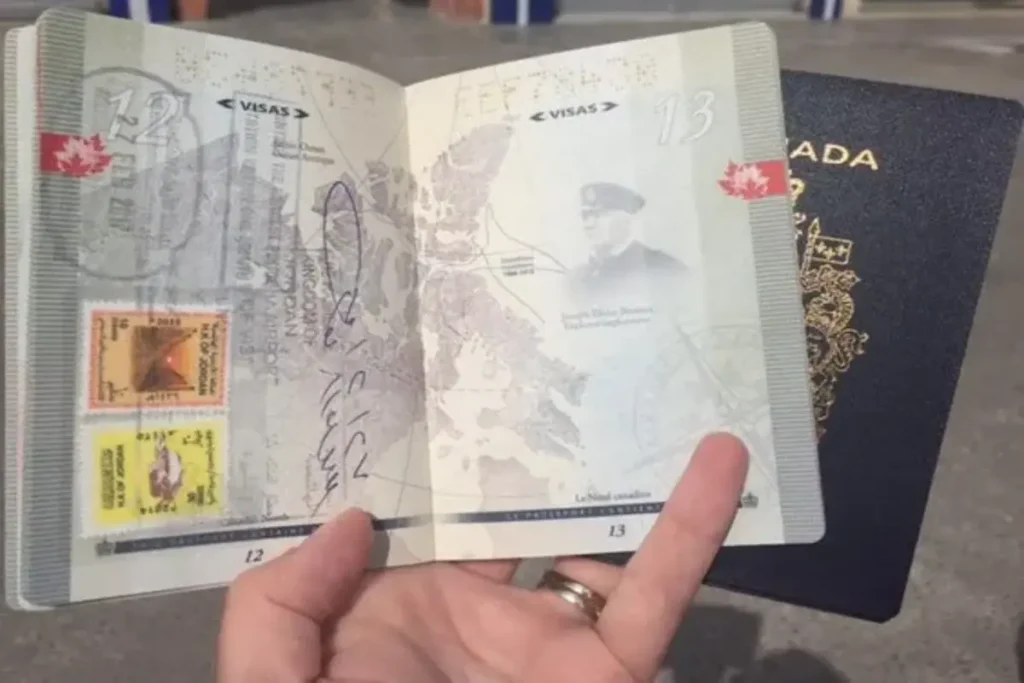The lowest nature reserve on earth !
Jordan visa policy
Plan your perfect Jordan getaway – know your visa requirements.
Introduction

Jordan’s visa policy varies depending on nationality, purpose of travel, and duration of stay. Citizens of several countries, including Gulf Cooperation Council (GCC) nations such as Saudi Arabia, the UAE, Qatar, Kuwait, Bahrain, and Oman, as well as Lebanon, Turkey, and Egypt, can enter Jordan without a visa for varying periods. Many other nationalities, including those from the United States, Canada, the European Union, the United Kingdom, and Australia, are eligible for a visa on arrival, which is typically valid for 30 days and can be obtained at most border crossings, except for the King Hussein Bridge. Travelers who require a visa in advance must apply at a Jordanian embassy or consulate, providing necessary documentation such as a passport, application form, and sometimes proof of accommodation or financial means. Jordan also offers the Jordan Pass, a convenient option for tourists, which includes a visa waiver (if staying at least three nights) and access to major tourist sites, including Petra and Wadi Rum. Visa extensions can be requested at police stations in Jordan, and overstaying may result in fines. Additionally, specific rules apply to Palestinian passport holders and certain restricted nationalities, who may need special approvals. Transit passengers staying less than 24 hours and not leaving the airport do not require a visa. Jordan’s visa policies are subject to change, so travelers are advised to check with official Jordanian authorities or embassies before their trip.
The cost of a Jordanian visa depends on the type and method of issuance. Here are the general visa fees:
- Visa on Arrival: 40 JOD (approx. 56 USD) for a single-entry visa, valid for 30 days.
- Double-Entry Visa: 60 JOD (approx. 85 USD).
- Multiple-Entry Visa: 120 JOD (approx. 170 USD), valid for six months.
- Jordan Pass: Starts at 70 JOD (approx. 99 USD) and includes visa fees if staying at least three nights, plus entry to over 40 attractions, including Petra and Wadi Rum.
Fees may vary depending on nationality and where the visa is obtained. It’s always best to check with official Jordanian authorities before traveling.


Certain nationalities must obtain a visa before traveling to Jordan by applying at a Jordanian embassy or consulate. These generally include travelers from countries with restricted entry policies. While the list may change, some of the nationalities that typically require a pre-approved visa include:
- Afghanistan
- Bangladesh
- Ethiopia
- Ghana
- Iran
- Iraq (except those with a residency permit from the Gulf Cooperation Council, EU, UK, USA, Canada, Australia, or New Zealand)
- Nigeria
- Pakistan
- Philippines
- Somalia
- Sri Lanka
- Sudan
- Syria
- Yemen
Travelers from these countries usually need to apply well in advance, provide supporting documents (such as financial proof, hotel bookings, and a sponsor letter in some cases), and sometimes undergo additional security checks.
Since visa policies can change, it is always advisable to check with the nearest Jordanian embassy or consulate before making travel arrangements.
Jordan visa policy
Jordan’s visa policy varies depending on the traveler’s nationality, purpose of visit, and length of stay. Citizens of several countries, including Gulf Cooperation Council (GCC) nations such as Saudi Arabia, the UAE, Qatar, Kuwait, Bahrain, and Oman, as well as Lebanon, Turkey, and Egypt, can enter Jordan without a visa for a limited period. Many other nationalities, including those from the United States, Canada, the European Union, the United Kingdom, and Australia, are eligible for a visa on arrival, which costs 40 JOD (approximately 56 USD) and is typically valid for 30 days. However, some travelers must obtain a visa before arriving in Jordan by applying at a Jordanian embassy or consulate. This applies to citizens of countries like Afghanistan, Bangladesh, Ethiopia, Nigeria, Pakistan, the Philippines, and Syria, who require prior approval and additional documentation for entry.
For tourists, Jordan offers the Jordan Pass, which includes entry to over 40 attractions, such as Petra and Wadi Rum, and waives visa fees if the visitor stays at least three nights. Multiple-entry visas are also available for those planning extended stays or frequent visits, with fees ranging from 60 JOD (85 USD) for a double-entry visa to 120 JOD (170 USD) for a multiple-entry visa valid for six months. Visa extensions can be requested at local police stations, while overstaying may result in fines. Transit passengers staying less than 24 hours and not leaving the airport do not require a visa. Since visa regulations may change, travelers should always check with the nearest Jordanian embassy or official government sources before departure.

Applying for a Jordan Visa on Arrival
Many nationalities, including those from the United States, Canada, the United Kingdom, Australia, and most European and Asian countries, are eligible for a visa on arrival when traveling to Jordan. This visa is available at Queen Alia International Airport in Amman and most land border crossings, except the King Hussein Bridge (Allenby Bridge), which requires prior visa approval.
Steps to Apply for a Visa on Arrival
- Arrival at the Border or Airport – Travelers must proceed to the visa section upon arrival.
- Present Required Documents – A valid passport (with at least six months validity), travel itinerary, and return ticket may be required.
- Pay the Visa Fee – The cost for a single-entry visa is 40 JOD (around 56 USD), payable in cash or by card at most entry points.
- Visa Issuance – Once payment is made, the visa is stamped into the passport, allowing a 30-day stay.
Important Notes
- Visa Extensions: Can be requested at a local police station in Jordan.
- Overstay Penalties: Overstaying may result in a fine of 1.5 JOD per day.
- Jordan Pass: Tourists planning to visit Jordan’s attractions can purchase a Jordan Pass (starting at 70 JOD), which includes the visa fee if staying at least three nights.
Since visa policies can change, travelers should verify eligibility and requirements with the nearest Jordanian embassy or official government sources before traveling.
What is the Jordan Pass?
The Jordan Pass is a travel package designed to simplify entry and sightseeing for tourists visiting Jordan. It includes free entry to over 40 tourist attractions, such as Petra, Wadi Rum, Jerash, and the Roman Theatre in Amman. Additionally, it waives the visa-on-arrival fee (which is 40 JOD or approximately 56 USD) for visitors who stay in Jordan for at least three consecutive nights (four days). The pass is available for purchase online before arrival and comes in three options: Jordan Wanderer (70 JOD), Jordan Explorer (75 JOD), and Jordan Expert (80 JOD), each offering varying numbers of days for Petra visits.
Besides saving money on entrance fees, the Jordan Pass also eliminates the hassle of purchasing individual tickets at each site and allows tourists to move more freely between attractions. It is best suited for travelers planning to explore multiple historical and cultural sites. However, the pass does not cover additional costs such as transportation, guided tours, or visa extensions. Since requirements and prices may change, it is recommended to check the official Jordan Pass website or Jordanian government sources before purchasing.
